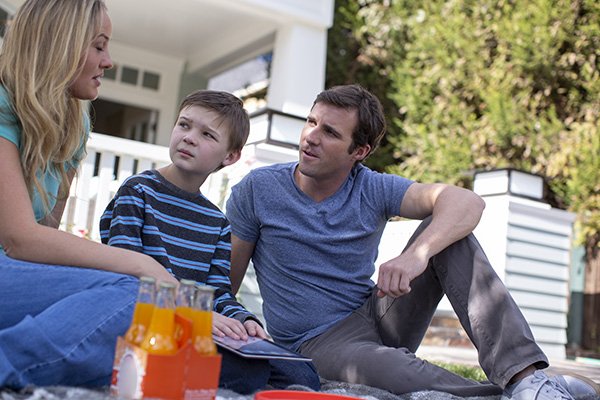Nurturing Emotional Growth: Modeling Healthy Disagreements in Front of Children
If you find yourself reeling in the aftermath of infidelity or betrayal trauma, emotions running high, it can be even more challenging to navigate disagreements within your relationship, especially when children are present. It's natural to wonder how these conflicts impact our children and what we can do to protect their emotional well-being. While peacefully resolving conflicts is always the goal, we understand that it's not always easy, particularly in the face of deep emotional wounds. By understanding the profound impact our actions have on our children and fostering healthy ways to resolve conflicts, we can not only promote their emotional well-being and resilience but also lay the foundation for rebuilding trust and restoring our relationships.
When Disagreements Hurt
It's important to acknowledge that disagreements laden with anger and aggression can be harmful to our children's emotional development. When harsh words are exchanged, voices are raised, or physical aggression is displayed, it can create an atmosphere of fear, anxiety, and uncertainty. Children may internalize these negative behaviors, leading to a range of emotional difficulties, including anxiety, low self-esteem, and even aggression toward others.
Additionally, witnessing persistent conflict can shape their perception of relationships. They may grow up believing that aggression and unresolved conflicts are the norm, perpetuating a cycle of damaging behavior in their own future relationships. Understanding the potential harm is vital in order to open ourselves up to a healthier approach – one that models mutual respect, empathy, and the cultivation of healthy boundaries.
Modeling Disagreements with Healthy Boundaries and Respect
Every conflict presents an opportunity for growth and learning, and by modeling healthy disagreements, we can teach our children valuable life skills. Here are some strategies to consider:
Cultivate Emotional Awareness: Before engaging in a disagreement, take a moment to reflect on your emotions. Identify what you're feeling and why, allowing yourself to calm down if necessary. This helps prevent reactive behavior based on unresolved emotions.
Choose the Right Time and Place: Find a suitable moment to address the issue, ensuring that you have privacy and uninterrupted time. Choose a neutral space where everyone feels comfortable expressing their thoughts without fear of judgment or interruption.
Active Listening: Encourage active listening by giving each person an opportunity to express their perspective. Avoid interrupting or dismissing their feelings. Validate their emotions and acknowledge their point of view, even if you may not agree with it entirely.
Use "I" Statements: Communicate your thoughts and feelings using "I" statements, such as "I feel" or "I need." This promotes personal responsibility for our emotions and helps avoid placing blame on others.
Seek Common Ground: As you communicate, try to find shared interests or goals. By focusing on common ground, you can foster understanding and a sense of teamwork, rather than viewing the situation as a win-lose scenario.
Resolve the Conflict Together: Work towards finding a resolution that respects both parties' needs. This may involve compromise, brainstorming alternative solutions, or seeking guidance from a neutral third party, such as a therapist or mediator.
Disagreements are inevitable, but they don't have to be destructive. Disagreements can become stepping stones to greater understanding, empathy, and resilience when handled with healthy boundaries and respect. By modeling these skills, we equip our children with powerful tools to forge healthy relationships throughout their lives.
By observing parents or caregivers engaging in respectful dialogue, problem-solving, and finding common ground, children learn crucial skills necessary for navigating their own interpersonal relationships. They witness the power of empathy, effective communication, and compromise, which can ultimately shape their ability to handle conflict in a healthy manner. Providing them with such invaluable experiences sets the foundation for their emotional well-being and equips them with the tools they need to build strong and fulfilling connections throughout their lives.
Remember that seeking support from a trained professional can be immensely valuable in building the skills necessary to navigate conflicts effectively. At Insights Counseling Center, our compassionate therapists are here to help. Reach out today to schedule a couples therapy session if you would like to consider how to do this.

